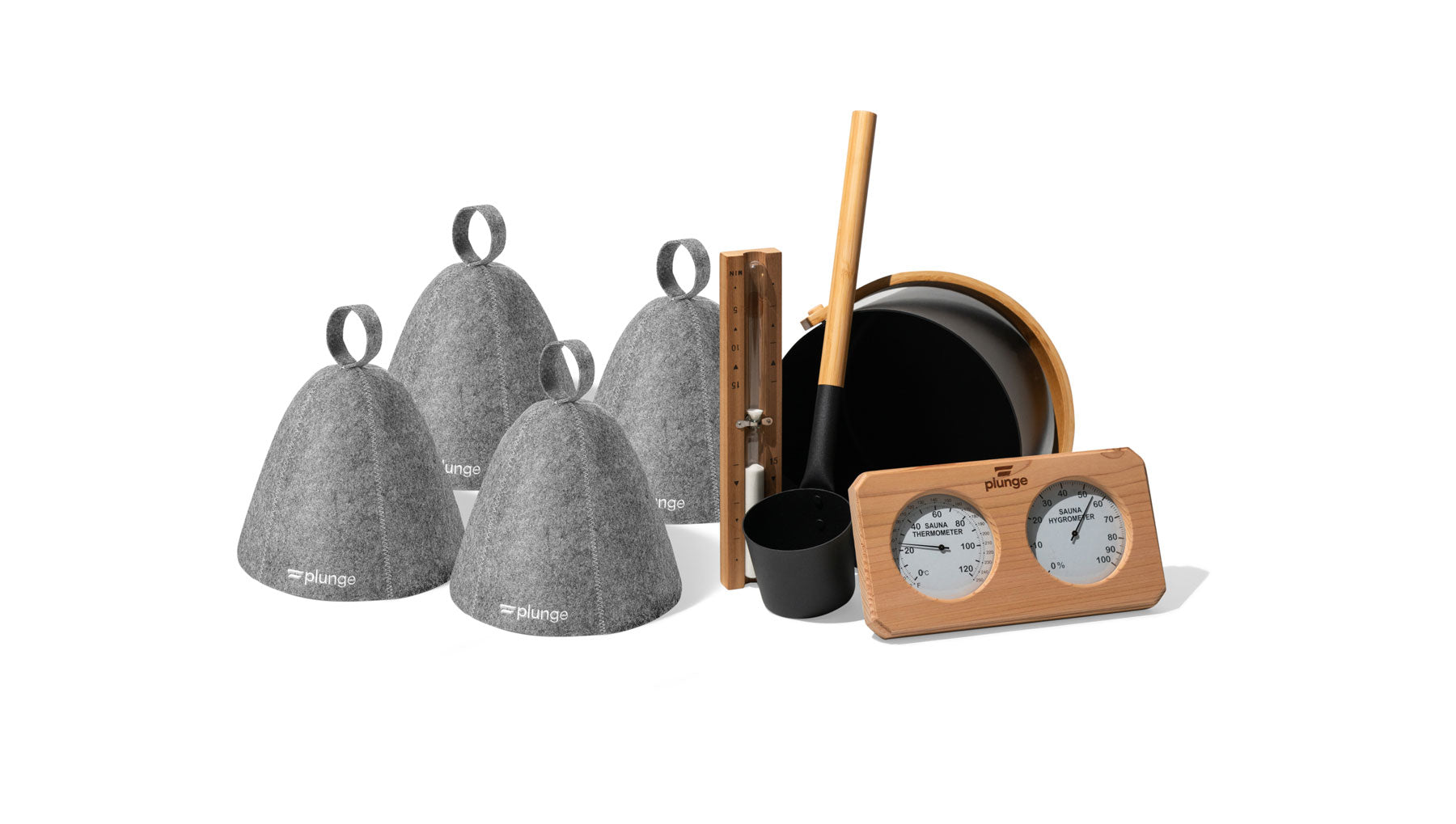
What to Eat After a Workout: Best Muscle Recovery Foods
How much do you know about how to manage the sore muscles, inflammation, and low energy that can follow an intense workout? After all, it’s difficult to motivate yourself to exercise if you always feel like you’re struggling to recover from your last trip to the gym.
Knowing what to eat after a workout can help you get more out of the time you spend moving your body. This guide will help you identify muscle recovery foods and understand how to maximize their benefits. You’ll also learn how to create nourishing post-workout meals that will give you the energy you need to maintain a healthy lifestyle.
How Food Can Help You Work Out and Recover
When you exercise, you are intentionally placing your muscles under stress. After your workout, amino acids repair the damage your muscles have undergone, building them back stronger than before.
Amino acids are the building blocks of proteins, which explains why so many experts suggest consuming protein after a workout, especially during the so-called “anabolic window,” the 30-60 minutes following exercise when your muscles metabolize amino acids most efficiently.
Health nuts have long consumed powders, bars, and supplements during the anabolic window to optimize muscle recovery. However, research suggests that it’s more effective to simply be mindful of your nutrition throughout the day. A balanced diet of whole foods that includes carbohydrates as well as proteins, and healthy fats is the key to sustainable well-being.
Adjusting your diet to prioritize your body’s post-workout needs can have many benefits:
1. Better Recovery
Especially if you’re doing long, high-intensity workouts or exercising several times per day, you must approach food as fuel. Consuming complex carbohydrates before and after exercise is crucial for stabilizing your blood sugar and restocking your glycogen reserves, which can provide you with the energy to power through.
2. Less Muscle Fatigue
A healthy supply of protein and glycogen in the body also helps prevent muscle pain. Consuming protein and carbohydrates after a workout can help ease next-day soreness, which is crucial to keeping you consistent in working toward your fitness goals.
3. Stronger Muscles
When your workout damages your muscle cells, your body uses a process called muscle protein synthesis (MPS) to repair them. Protein is the best food for sore muscles because it supplies the amino acids necessary to supercharge this process.
4. Less Inflammation
A little inflammation after a workout is a good thing: it stimulates muscle repair and recovery. However, chronic inflammation is associated with a variety of diseases and disorders, including cardiovascular disease, cancer, and diabetes. To reduce inflammation through dieting, try to consume foods that contain healthy fats.
What to Eat After a Workout
There is no single best food for muscle recovery. When you’re choosing a post-workout meal, consider foods that give you a balance of protein, carbohydrates, and unsaturated fats and provide you with vitamins, minerals, and antioxidants. Avoid foods high in saturated fat and sugar.
Lean proteins, found in animal products, beans, nuts, and seeds, provide you with amino acids for muscle repair. However, there’s no need to stuff yourself with protein: a moderate serving is perfect. Protein should make up 10-35% of your daily caloric intake.
Carbohydrates provide us with energy. Your body breaks carbs down into glucose, which can be quickly “spent” as fuel, and stores the rest as glycogen. Minimally processed, complex carbohydrates from whole grains, fruits, and vegetables are the best recovery foods because they are easy for your body to digest.
Fats help your body recover from exercise indirectly: they help you feel full, support your energy, and contain omega-3 fatty acids, which reduce inflammation. Unsaturated fats are healthiest: you’ll find them in coldwater fish, avocados, seeds, nuts, and olive oil.
Best Muscle Recovery Foods
1. Protein Shakes

Powders, shakes, and bars are some of the most convenient sources of post-workout protein. Whey protein is considered the “gold standard” for muscle growth, but if you are vegan or dairy-free, soy protein is another great option. Look for products that contain few additives or sweeteners.
Experts recommend that you consume just one serving of protein powder after a workout. Your body will have a hard time digesting more than that. The easiest way to consume protein powder is to simply mix it into water, fresh milk, or oat milk, but you can also add it to your favorite smoothie.
2. Hard Boiled Eggs
Eggs are an excellent food for muscle recovery because they are packed with healthy fats and protein. In fact, eggs have the highest protein digestibility-adjusted amino acids score, which means that the protein they provide is extremely easy for your body to use. Eggs are also very high in leucine, which aids in protein synthesis.
Hard-boiled eggs make great snacks on their own, but they’re also excellent additions to salads and sandwiches. Eggs are also great paired with a lean protein like salmon or chicken.
3. Tart Cherry Juice

Tart cherry juice is a highly concentrated source of polyphenols, which combat oxidative stress and inflammation. Research suggests that tart cherry juice may actually prevent muscle damage instead of just helping to repair it.
You can drink tart cherry juice straight, but some people prefer to dilute it with still or sparkling water. You can also add it to smoothies or juice blends or drizzle it onto yogurt.
4. Green Tea Extract

Green tea extract is a potent source of antioxidants called catechins and polyphenols, which can help combat free radicals that cause muscle damage and soreness.
Perhaps the simplest way to reap the benefits of green tea is to drink it. Just be sure to avoid green tea drinks with sweeteners and additives. If you don’t like the taste of green tea, green tea extract also comes in capsules, liquids, and powders.
5. Chia Seeds
@choosingchia What flavour would you like to see next?💕 Alll these chia pudding recipes are lonked in my prodile or you can use the search bar on my blog-just tap the search bar and type on the name of the recipe you want!🫶🏻 #chiapudding #chiaseedpudding #chiapuddingrecipe ♬ greedy sped up - Tate McRae
Chia seeds are the ultimate superfood: they lower cholesterol and blood sugar, help you feel full, support weight loss, and improve digestion and heart health. They are one of the few plant sources of all nine essential amino acids, and they are packed with fiber, antioxidants, omega-3 fatty acids, vitamins, and minerals.
Chia seeds don’t have much flavor and can be consumed raw, which makes them easy to add to a variety of foods. When wet, they develop a unique gel-like consistency. Try adding a tablespoon of chia seeds to a glass of water or juice or mixing them into a smoothie. Alternatively, add them to oatmeal, yogurt, pudding, or baked goods.
6. Nuts

Nuts are a well-balanced source of protein, fiber, and unsaturated fats, which is great for those of us who are trying to cut back on animal products. Because they reduce inflammation, support energy, and help the body absorb fat-soluble vitamins, they are a great food for sore muscles.
A handful of any type of nut will provide you with a boost after exercise, but be sure to choose dry-roasted or raw nuts over nuts coated in salt or sugar. You could try adding them to trail mix or oatmeal or consuming them as nut butter on toast or celery.
7. Cottage Cheese
Cottage cheese is packed with easy-to-digest casein protein, which contains all the essential amino acids your body needs. Research indicates that consuming at least 40g of casein after a workout may help control inflammation and speed muscle recovery, which will leave you feeling better after a tough workout.
Cottage cheese is great on toast with the toppings of your choice, alongside eggs, or spread on vegetables. It’s also a great compliment to fruit, jam, and nuts. If you dislike the texture of cottage cheese, try blending it!
8. Yogurt

Yogurt, especially Greek yogurt, is a convenient post-workout snack that’s packed with protein. Greek yogurt is also an excellent source of calcium, which supports bone and muscle health.
Though there are many yogurt products available at your local grocery store, stick with the plain, unsweetened Greek variety. To jazz up your yogurt while adding healthy carbohydrates for energy, try mixing in cereal, granola, or fruit.
9. Chocolate Milk

When you think of a post-workout beverage, you probably think of water or a sports drink. However, a recent meta-analysis suggests that chocolate milk may be actually better than either one at encouraging muscle recovery.
Milk contains casein and whey, both sources of protein that contain essential amino acids and calcium to protect against muscle loss. Chocolate milk is also rich in carbohydrates, which can restore your body’s glycogen reserves.
10. Sweet Potatoes
Sweet potatoes contain minimally processed, complex carbohydrates that your body can process slowly. This is crucial to replenishing the body’s glycogen levels without a blood sugar spike. Sweet potatoes are also high in vitamins A, B5, and B6, beta-carotene, and fiber.
Try roasting sweet potatoes to accompany a post-workout meal, or add them to a smoothie or oatmeal to stay full longer.
Post-Workout Meals: FAQs
What Do I Eat After a Workout to Lose Weight And Build Muscle?
To lose weight and build muscle, eat foods rich in protein after a workout. You don’t have to invest in shakes, powders, or bars to get protein; animal products like milk, cheese, fish, and lean meat, as well as beans, nuts, and seeds, are all great protein sources.
How Much Protein Should I Eat After Working Out?
Depending on your daily caloric intake and fitness goals, you should aim to consume roughly 10-25 grams of protein after working out. Less than that may lead to lackluster gains and sore muscles, while more may be difficult for your body to digest.
What are the Best Foods to Eat to Speed up Muscle Recovery?
The best foods to eat to speed up muscle recovery are whole foods packed with protein, unsaturated fats, and complex carbohydrates. Avoid processed snacks that contain saturated fats and sugar, and be sure to hydrate!
What’s the Best Way to Relieve Sore Muscles After Workouts?
Beyond maintaining a healthy, balanced diet, sauna therapy is one of the best ways to heal sore muscles after a workout. Just 15-20 minutes per day spent in a sauna after workouts can relieve sore muscles, increase strength, and reduce inflammation. In addition, many athletes take ice baths to kickstart the muscle recovery process.
Using Hot and Cold Therapies for Muscle Recovery
No matter your fitness routine, a healthy diet is key to muscle recovery. Consuming post-workout snacks and meals with the right balance of protein, carbohydrates, and fats is crucial to maintaining long-term wellness.
To further optimize your workout routine, consider the benefits of hot or cold therapy. Using saunas or ice baths after workouts can lessen inflammation, speed muscle recovery, and reduce muscle pain.
Whether you’re in the market for our Contrast Therapy Bundle—including a deluxe Plunge All-In and The Sauna—or you just want to dip your toes into the affordable Plunge Pop-Up Ice Bath, Plunge has what you need to take your wellness journey to the next level. Head here to learn more about the benefits of cold plunging and saunas, and find the best equipment to fit your needs.
























